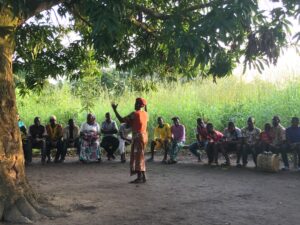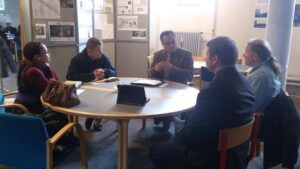Scripture Engagement Research Initiative

Here are the latest resources on the Scripture Engagement website:
Scripture Engagement Research Initiative< Mar 03, 2022 10:53 am
A multiagency research program of Dallas International University

Dallas International University (DIU), in collaboration with SIL’s Pike Center for Integrative Scholarship, has launched the Scripture Engagement Research Initiative (SERI). The SERI program hosts a series of large grant-funded Scripture Engagement research projects. Research topics are proposed both by participants and by the SERI leadership. Participants can serve for short periods of time or as part of a longer-term assignment.


 (photo credit:
(photo credit: